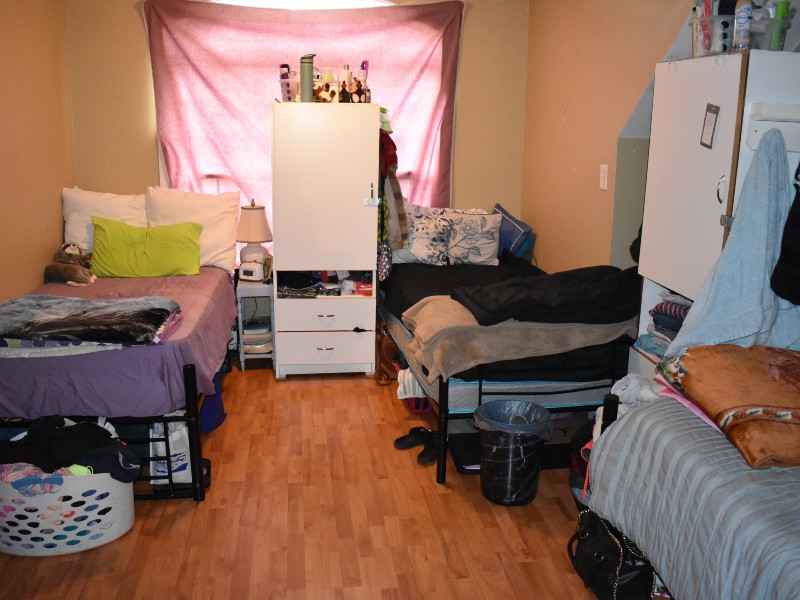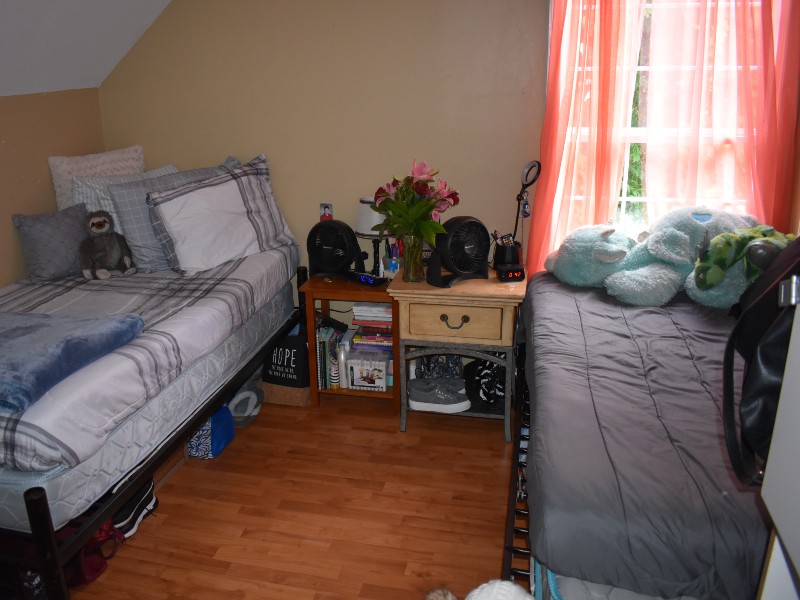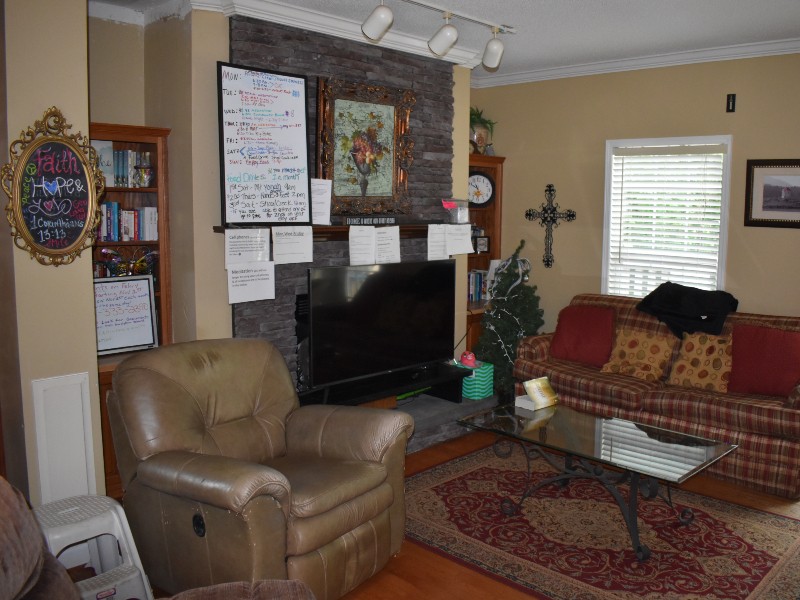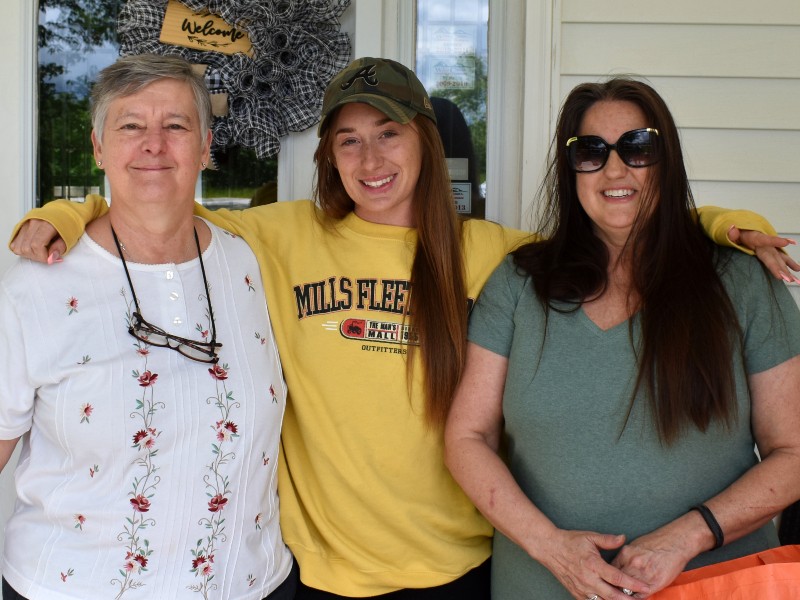The Right Recovery women’s rehabilitation facility in Cleveland has found its niche being a genuine home for those most in need, run by a staff that is a cut above the rest.
Rehabilitation centers invoke images of pale tile flooring, bright fluorescent lights, stark-white walls and caretakers in scrubs with nametags. It might even prompt thoughts of hospital beds and complete isolation from the outside world.
That is not the case for one women’s rehab facility in Cleveland.
The Right Recovery was founded in 2018 with the goal of providing women a safe place they can undergo drug treatment that produces real and lasting results. Facility Owner and Director Monica Crenshaw believes forming genuine relationships sets her rehab apart from the rest.
“We just want to be different, that's our niche,” Crenshaw said. “We are different in the fact that we're not going to leave you alone when you get out. We're just not. I mean, I am constantly [saying], ‘This week, who am I going to text? Who am I going to check in with?’”
Crenshaw runs the show with a team of four others, one of which is her daughter, Operations Manager Somers Graham. More than just a rehab, The Right Recovery is a welcoming home for those at a low point in their lives. Many of the women who graduate from the 12-month program end up coming back for frequent visits, according to Graham.
An attitude of giving back and helping others has always been important to the mother-daughter duo. Crenshaw recalled a story about Graham being 10 years old, walking in Atlanta near Fox Theater. It was winter and Graham was lagging behind. When Crenshaw turned around, Graham had given her scarf to one homeless person, her gloves to another and her hat to someone else.
The original idea for The Right Recovery came to Crenshaw after she witnessed the conditions Graham was living in at a rehab she attended years ago.
“There was just a big need in the community I think, and the other reason too is Somers was in a place — and I'm not trying to knock another rehab — but she was in a place where it was a really old house, it was 98 degrees, they were burning up,” Crenshaw said. “And there were these girls there that were really hungry, and they had absolutely no money. They were giving everything they had to this rehab, and they didn't even have toilet paper.”
Those weren’t the only issues seen in Graham’s previous rehab experience. She detailed how at one point, she climbed into an attic space to clear out a dead squirrel after it had been decaying for several weeks. All of these rehabilitation shortcomings are seen by The Right Recovery staff as motivation to create a positive, productive and homely environment for the women who live there.
That feeling was on display within two minutes of walking in the front door, as Graham and Crenshaw welcome those who visit with open arms, smiles and genuine authenticity. The interior of The Right Recovery looks and feels like people live there. In a phrase, it feels like home.
There is a lot more than just feeling that goes into making the women who join the program successful. Graham believes discipline, rules and structure are integral parts of the recovery process, which is why there is a healthy list of requirements to graduate.
“By the time you leave this program you'll leave with a teeth cleaning, you have to go to the OBGYN, you have to get your blood checked, you have to get your social security card, your birth certificate, checking account, savings account, check your credit just to get it in your mind, counselour twice a month and therapy twice a month,” Graham said.
Graham is a big proponent of attending the gym and takes the women to a local park on a weekly basis where they participate in various exercise routines and yoga.
The Right Recovery rehab is a four-step, year-long program, with each phase lasting three months. As residents advance through the phases, they are granted more privileges and freedoms, including additional phone usage, later curfew times and participation in more activities. Once a resident finishes the program, the house throws a graduation party in her honor and family and friends are invited for support.
The rehab primarily accepts women who have substance use disorders but also considers those who have additional struggles with mental health or depression. One major requirement of the program is all women must be able to hold down a full-time job. Importantly, the program only accepts women who have a real desire to be there.
The Right Recovery can house 24 women at one time, which is completely filled out as of Thursday. As the women advance through the program, there is always the possibility that it can take longer than 12 months if rules are broken, relapses happen or other issues arise. Women have the opportunity to be assisted in finding employment, receive counseling and hear from guest speakers. Alongside that, they start off every morning with meditation and learn life skills like coping mechanisms, cooking, gardening and budgeting.
Drug addiction treatment hits home for the team at The Right Recovery. Crenshaw lost her stepson to an accidental fentanyl overdose three years ago. Both she and Graham detailed the harrowing moment they found out about the overdose. While the rehab used to host women with a typical drug preference of methamphetamine or heroin, today a majority of the women who come through their door are addicted to fentanyl, according to Graham. To make matters more difficult, in some cases, the rehab staff has to work against a lifetime of drug abuse that may have started at an extremely young age.
“One thing I did not realize when I got in this business was a lot of these girls got started because their parents introduced them to drugs, which is horrific,” Crenshaw said.
That doesn’t deter Graham or Crenshaw.
“I think the biggest thing is that a lot of rehabs treat people as black and white,” Graham said. “But addiction and mental health is not black and white. It's easy when you have a lot of people to write off people as black and white and say, ‘Here's the rule,’ but that is something we don't do because people all have their own personal needs that are going to help you in your recovery.”
A large majority of women who live at the rehab were court-ordered to complete the program as part of their sentencing for various, often drug-related charges. Initially, the women are required to pay a $1,600 entry fee, which breaks down to $600 to get into the program and $1,000 for four weeks' rent upfront. Beyond that, the women pay $250 a week to live at the house and participate fully in the program. Graham believes this aspect gives the women an opportunity to assess bills, budget appropriately, pay rent and have less of a shock factor once they get back out into regular life.
The Right Recovery opened its doors in October 2018 and has been busy putting lives back together ever since.
“For me, there's no better investment than in people, hands down, there's just not,” Crenshaw said. “That to me is what makes the world go around.”





http://accesswdun.com/article/2023/6/1187110/not-so-black-and-white-womens-rehab-in-cleveland-aims-to-be-different
